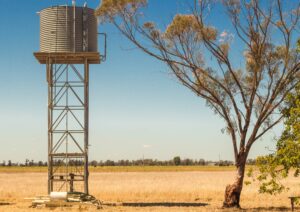500m people in Africa live with water insecurity on World Water Day
The first ever assessment of water security in Africa shows little progress has been made in the past five years to improve access to fresh water and sanitation in vast swathes of the continent.
Tuesday 22nd March marks World Water Day, but a new UN report – the first of its kind – has revealed just how much work there is to do in terms of water availability and security.
The only assessment of African water scarcity ever conducted has found that despite major global Sustainable Development Goals set out in 2015, the past half-decade has seen just 29 African nations improve water security, with 25 recording the same levels of scarcity as 2017.
Covering a total of 54 states, authors of the UNU-INWEH report acknowledge the disappointing results are themselves limited due to the ‘very poor data’ available on water security issues like access to drinking water and sanitation. However, the work does offer ‘preliminary but obvious conclusions’ relating to a dire situation wherein around 500m people live in African countries plagued by water insecurity.
‘Data limitations do not change the main outcome of this assessment, which is strong and clear,’ said the report’s lead author, Grace Oluwasanya. ‘Overall levels of water security in Africa are low. Not a single country, let alone a sub-region, have at present achieved a state that can be seen as ‘model’ or even ‘effective’ stage of water security.’
From the results, only Egypt managed to score above 70 (from a total of 100 points), with Botswana, Gabon, Mauritius and Tunisia rounding out the top five most water-secure countries in Africa. Just 13 of the 54 nations involved had reached ‘modest levels’ of water security in recent years, and over one-third are considered to have water security below a base level threshold of 45 points.
Somalia, Chad, and Niger were the most water insecure countries on the continent. Meanwhile, the Central African Republic registered just 37% of its population had access to drinking water, with Africa as a whole seeing 29% of the total population left out of drinking water supplies, equivalent to around 353m people.
Similar situations were identified with sanitation, although some countries such as Seychelles are approaching 100% access. In contrast, Chad and Ethiopia lagged far behind with under 20%. Overall, North Africa yielded better results, with West and Central countries facing the greatest challenges. Calls have now been made for global standards to be established so Africa’s situation can be compared to other global regions.
‘Data availability – or the lack of it – in itself may be an excellent indicator of water security,’ said Dr. Oluwasanya. ‘Action needs to be taken immediately by national governments with support from international agents to radically improve data collection efforts for Africa.’
In related news, scientists recently called for the term ‘drought’ to be redefined to fit the climate crisis age.
















